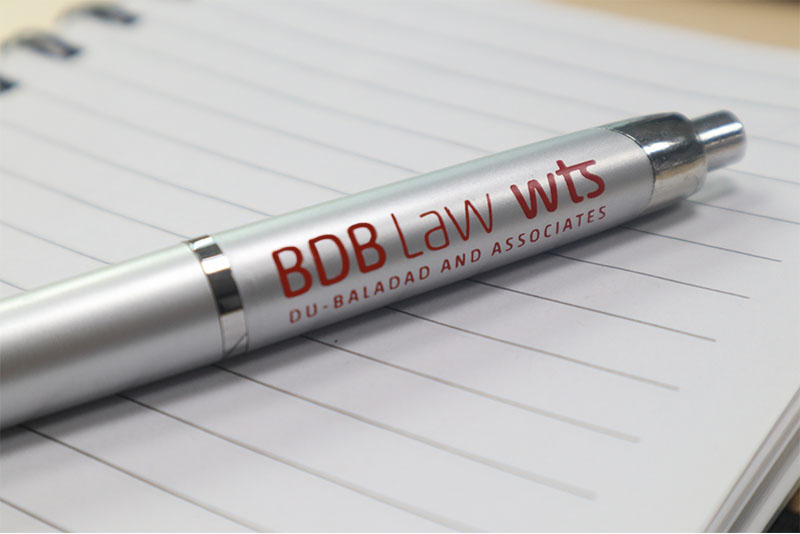
Duty to Give Reason
By Atty. Irwin C. Nidea Jr.
"It is the decision-maker's 'duty to give reason' to enable the affected taxpayer to understand how the rule of fairness has been administered in his case, to expose the reason to public scrutiny and criticism, and to ensure that the decision will be thought through by the decision-maker."
There is a perception that the immense power of the government to collect tax always tramples upon taxpayer’s rights. For a long time, the provision in the Tax Code which states “that the taxpayer be informed in writing of the law and of the facts on which the assessment is made” was just an idea that is nice to cite and assert in a protest letter. It offered hollow protection since the BIR can simply indicate figures in a tax assessment and leave taxpayers guessing on how an alleged tax deficiency was computed.
For many years, even the courts were leaning in favor of the BIR. When the BIR issue a Preliminary Assessment Notice (PAN) or a Final Assessment Notice (FAN) with nothing but a general enumeration of alleged deficiency tax liabilities and without any explanation on how the figures were derived, the courts said that it is enough compliance by the BIR. If the taxpayer was able to file a protest to the PAN and the FAN questioning the computation of the BIR, then it must be aware of the reasons behind the said computation. There is no need to explain the computation because the taxpayer was able to file an intelligent protest to an assessment anyway.
When a taxpayer files a protest to the PAN and the FAN within 15 days and 30 days respectively, it expects the BIR to consider its arguments when issuing its decisions. But in many cases, taxpayer’s explanations and submissions are disregarded without any written explanation.
 Recent decisions of the courts demand more from the BIR. More teeth are now given on the right of a taxpayer to be informed of the facts and the law on which an assessment is made. According to the courts, the BIR is required to render a decision in a manner that the taxpayer may know the various issues involved and the reasons for the decision. It is the decision-maker's 'duty to give reason' to enable the affected taxpayer to understand how the rule of fairness has been administered in his case, to expose the reason to public scrutiny and criticism, and to ensure that the decision will be thought through by the decision-maker. (GR 201398-99)
Recent decisions of the courts demand more from the BIR. More teeth are now given on the right of a taxpayer to be informed of the facts and the law on which an assessment is made. According to the courts, the BIR is required to render a decision in a manner that the taxpayer may know the various issues involved and the reasons for the decision. It is the decision-maker's 'duty to give reason' to enable the affected taxpayer to understand how the rule of fairness has been administered in his case, to expose the reason to public scrutiny and criticism, and to ensure that the decision will be thought through by the decision-maker. (GR 201398-99)
According to the court, the Details of Discrepancy attached to the PAN and the FAN must comment or address the defenses and documents submitted by a taxpayer because he will be left unaware on how the BIR appreciated the explanations or defenses raised in connection with the assessments. The BIR is not obliged to accept the taxpayer's explanations. However, when the BIR rejects these explanations, it must give some reason for doing so. It must give the particular facts upon which its conclusion are based. and those facts must appear in the record.
In a recent case, the court noted that there was no difference in terms of the amounts indicated in the PAN and the FAN, the only difference between the said PAN and the FAN is that the amounts of interest were adjusted. The respective basic tax due substantially remained the same. The BIR merely reiterated the same findings as stated in the said PAN, without giving any reason for rejecting the refutations and explanations made by the taxpayer. Without addressing the refutations and explanations, the BIR did not give the particular facts upon which the FAN is based. Hence, the taxpayer was left unaware on how the BIR appreciated the explanations or defenses the taxpayer raised against the PAN, in clear violation of the taxpayer’s right to due process. (CTA 9758)
With this development, the BIR is now obliged to justify why it cannot accept a taxpayer’s explanation. More importantly, the BIR’s explanation must be written and must form part of the records for the world to see. This will hopefully discourage the BIR examiners from issuing unreasonable and bloated tax assessments for fear of being held accountable. The presumption of regularity in their tax assessments cannot save them this time.
The author is a senior partner of Du-Baladad and Associates Law Offices, a member-firm of WTS Global.
The article is for general information only and is not intended, nor should be construed as a substitute for tax, legal or financial advice on any specific matter. Applicability of this article to any actual or particular tax or legal issue should be supported therefore by a professional study or advice. If you have any comments or questions concerning the article, you may e-mail the author at This email address is being protected from spambots. You need JavaScript enabled to view it. or call 8403-2001 local 330.




